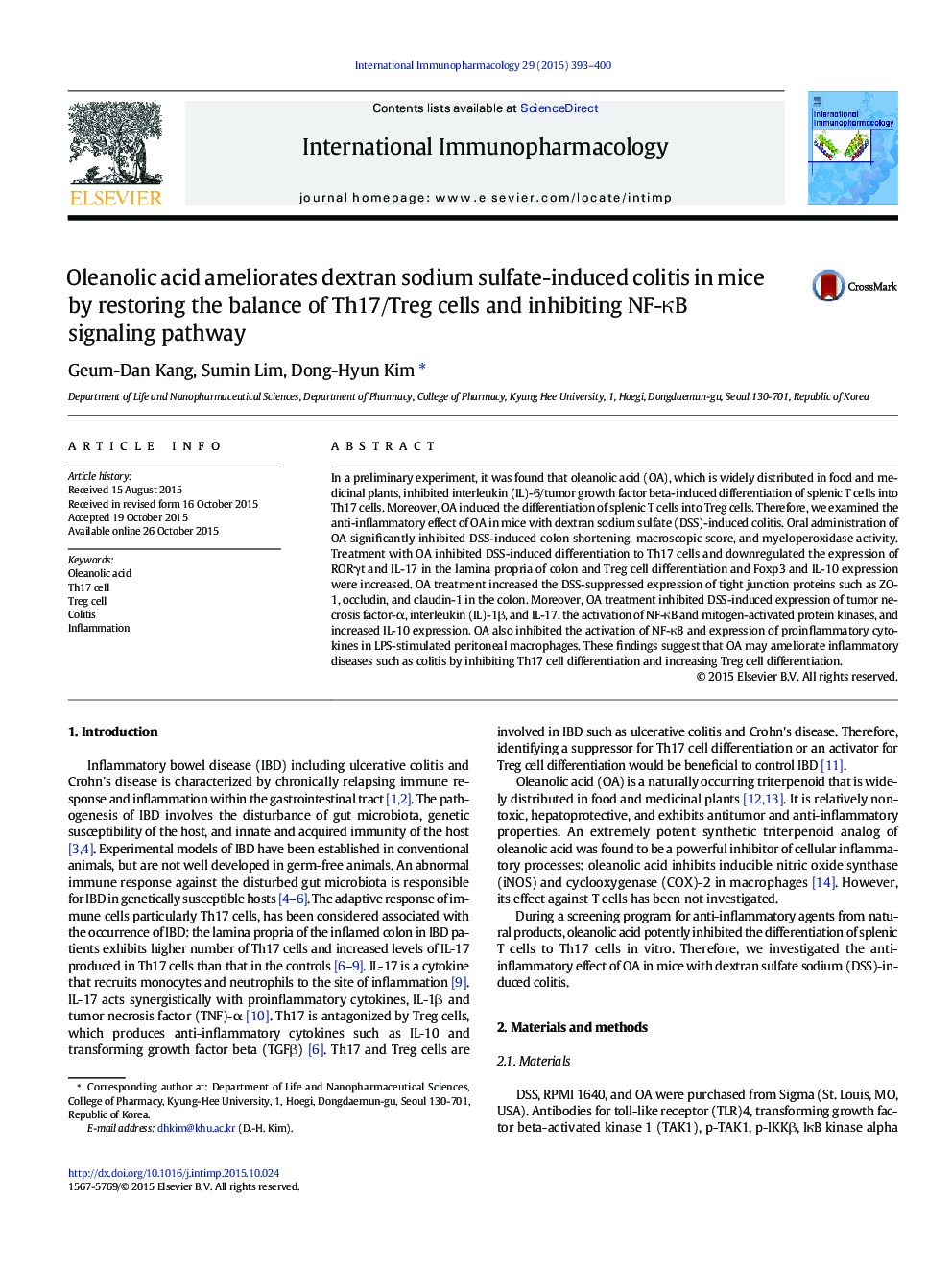| Article ID | Journal | Published Year | Pages | File Type |
|---|---|---|---|---|
| 5832149 | International Immunopharmacology | 2015 | 8 Pages |
â¢Oleanolic acid (OA) inhibited the differentiation of splenic T cells into Th17 cells in vitro.â¢OA suppressed DSS-induced colitis in mice.â¢OA inhibited corrected DSS-induced imbalance of Th17/Treg cells.â¢OA inhibited DSS-induced NF-κB activation and IL-17 expression.â¢OA increased DSS-suppressed IL-10 expression.
In a preliminary experiment, it was found that oleanolic acid (OA), which is widely distributed in food and medicinal plants, inhibited interleukin (IL)-6/tumor growth factor beta-induced differentiation of splenic T cells into Th17 cells. Moreover, OA induced the differentiation of splenic T cells into Treg cells. Therefore, we examined the anti-inflammatory effect of OA in mice with dextran sodium sulfate (DSS)-induced colitis. Oral administration of OA significantly inhibited DSS-induced colon shortening, macroscopic score, and myeloperoxidase activity. Treatment with OA inhibited DSS-induced differentiation to Th17 cells and downregulated the expression of RORγt and IL-17 in the lamina propria of colon and Treg cell differentiation and Foxp3 and IL-10 expression were increased. OA treatment increased the DSS-suppressed expression of tight junction proteins such as ZO-1, occludin, and claudin-1 in the colon. Moreover, OA treatment inhibited DSS-induced expression of tumor necrosis factor-α, interleukin (IL)-1β, and IL-17, the activation of NF-κB and mitogen-activated protein kinases, and increased IL-10 expression. OA also inhibited the activation of NF-κB and expression of proinflammatory cytokines in LPS-stimulated peritoneal macrophages. These findings suggest that OA may ameliorate inflammatory diseases such as colitis by inhibiting Th17 cell differentiation and increasing Treg cell differentiation.
Graphical abstractDownload high-res image (89KB)Download full-size image
